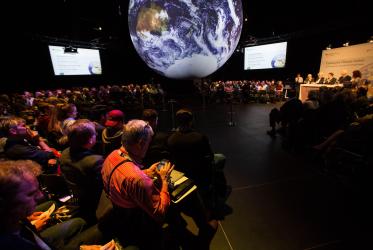Displaying 1 - 17 of 17
African church leaders train in leadership, diakonia and development
12 November 2021
An interview with the Ethiopian Patriarch, Abune Matthias
14 February 2017
Faith communities explore concrete climate action at COP22
10 November 2016
WCC conference explores ecological injustice in Uganda
21 April 2016
WCC member churches pursue climate justice
01 April 2015
Thursdays in Black: zero tolerance for violence against women
11 October 2013








